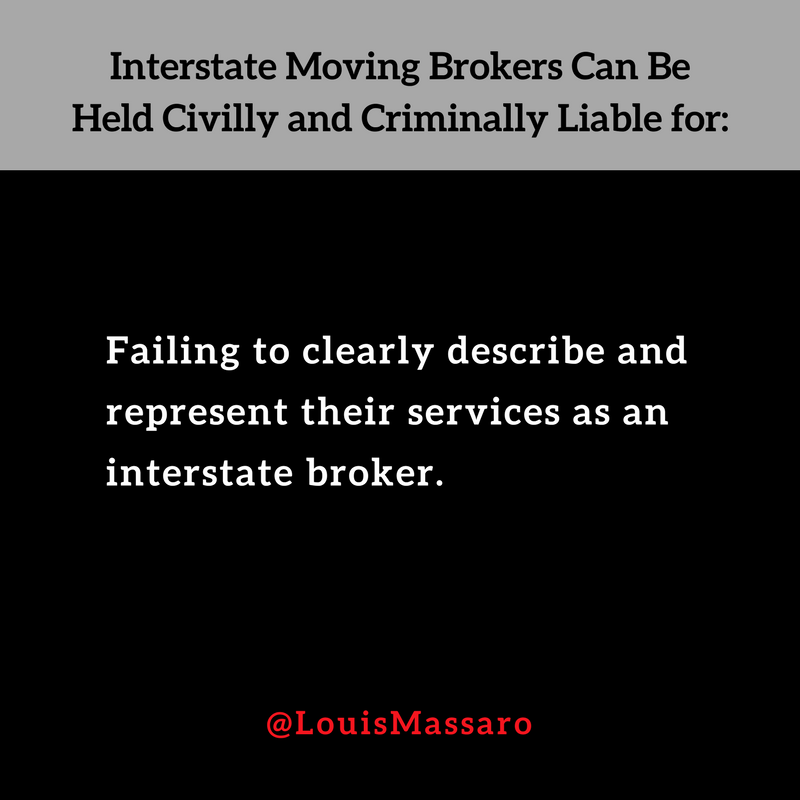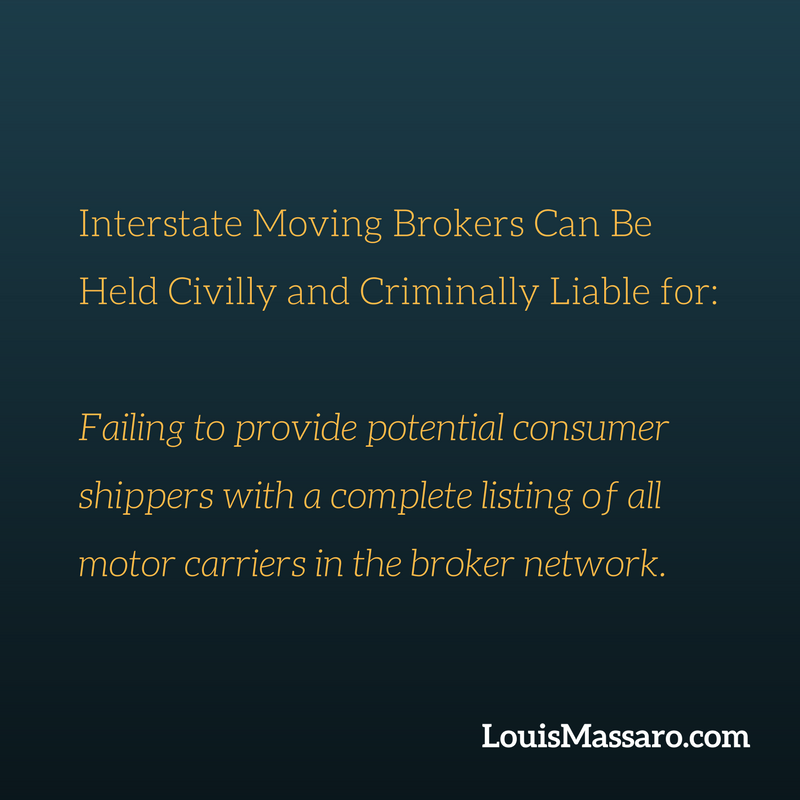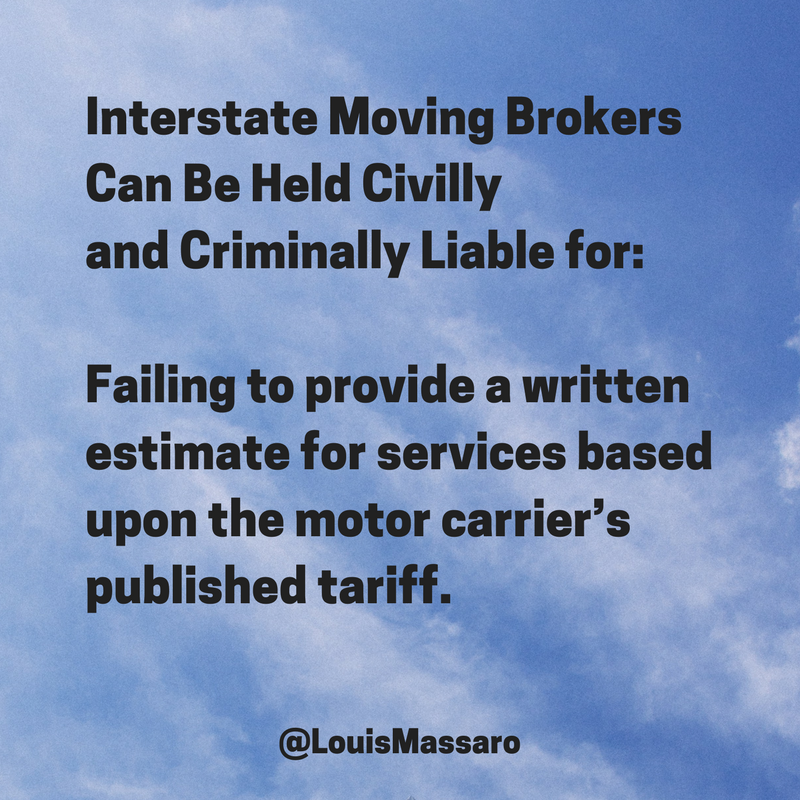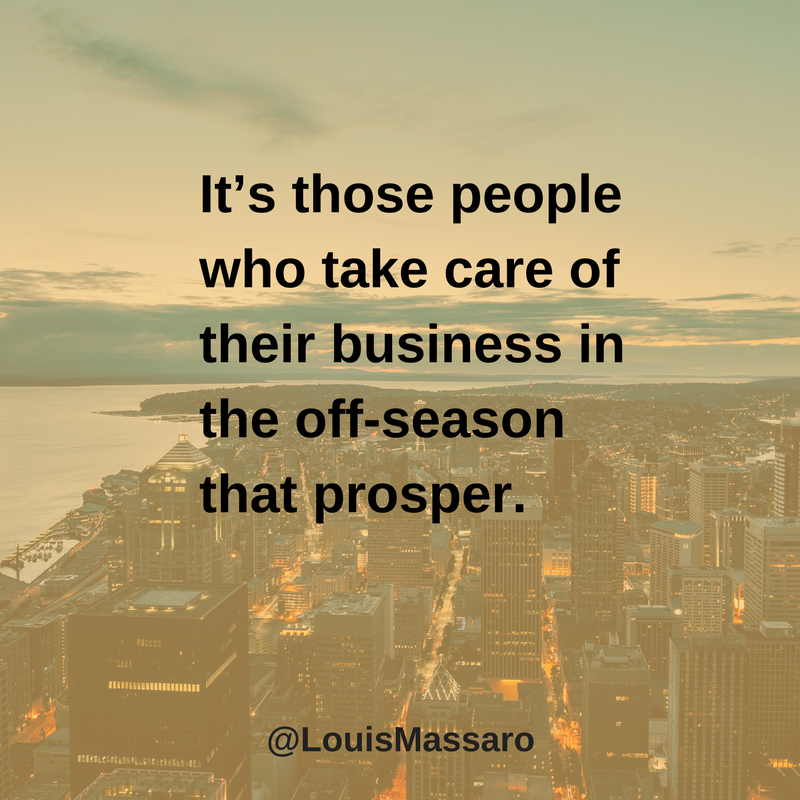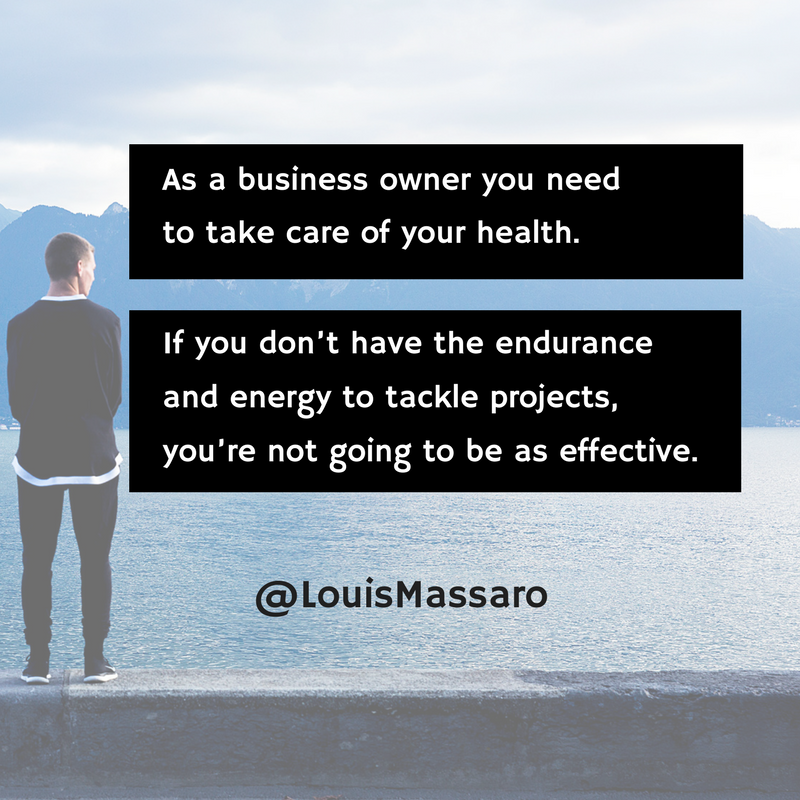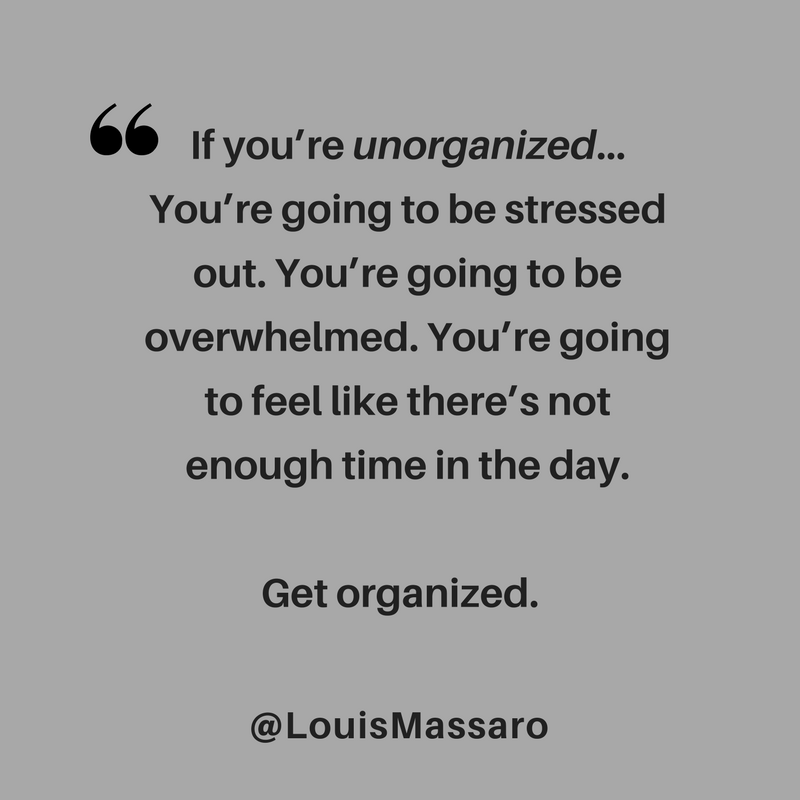[fb_button]
One of the most important things you can do as a business owner is review your
Profit and Loss Statement every month. This will give you clarity into what is really going on inside your company. The numbers don’t lie, they’ll tell you the truth about areas that need work and the areas that are doing great.
Review Your Profit and Loss Statement Monthly
- Record all income and expenses – You need to make sure that all of your income and expenses are being recorded in an accounting software like Quickbooks Online.
- Review a detailed P&L – Before you can dive into your numbers and start analyzing what’s going on, you need to make sure that all your numbers are correct. Make sure that each transaction is entered into the correct category within your accounting software.
- Review summary P&L with the percentage of income – Now that you verified and made corrections to ensure your numbers are right, it’s time to review them. Print off a summary P&L statement and add the filter for the percentage of income (% of income). This will give you a better perspective into what is going on than just looking at the total numbers.
- Mark it up and write all over it – When you are reviewing the statement, write all over it. Circle, highlight, make notes and write out questions you may have or things you need to look into.
- Identify areas of concern and opportunities – Now you want to look for any areas that could be causing your profits to be lower than they should be. You’ll also want to identify opportunities where you can take something that is working good and enhance it.
This routine of reviewing my P&L every month is one of the most important things that I did for my companies. This is what really gave me the clarity and confidence I needed to get to the next level. Once you know your numbers, things become very clear. Get in this habit and gain more control over your company’s future.
Watch the video above for the full episode.
[fb_button]
Like this episode? Please share it! My blog and videos are ad-free ONLY because you share my work!
How can I help? What challenges are you facing in your business? What areas could you use some tips in?
Leave me a comment below and I will be more than happy to get back to you or post a video on the topic.
Follow Louis on Instagram for daily tips and motivation to grow your moving company.

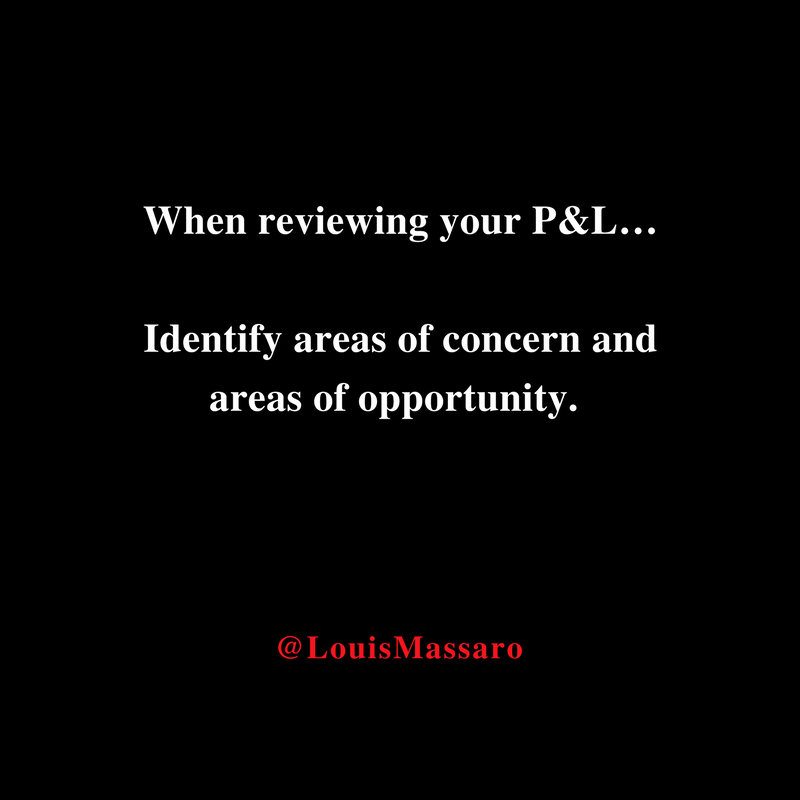
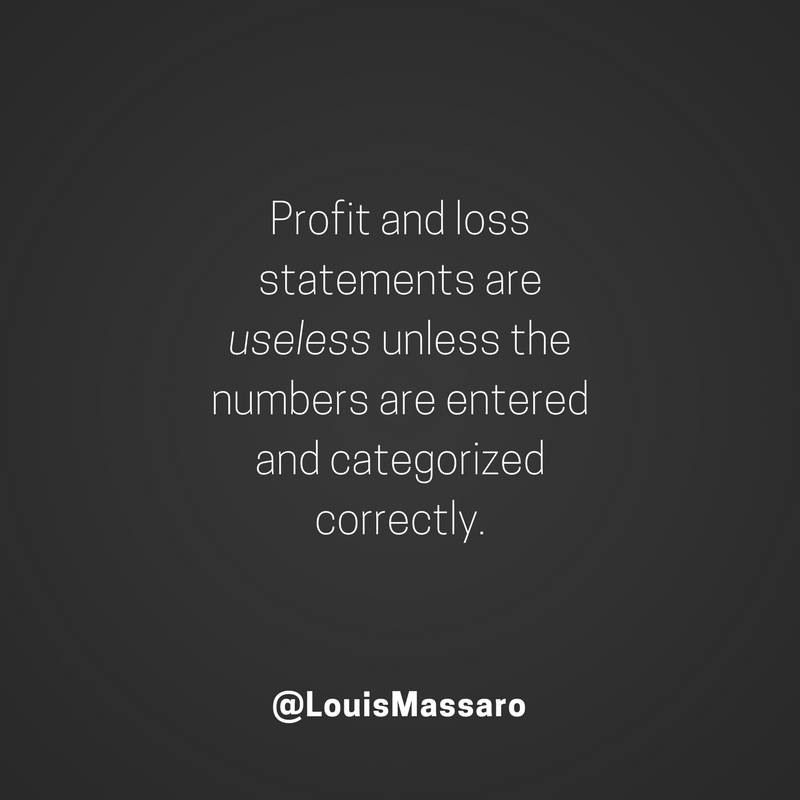
Full Transcript
[The following is the full transcript of this episode.]
Hey, my friend, it’s Louis Massaro, CEO of Moving Mastery and founder of Moving Sales Academy. Do you ever feel like you’re just not on top of your business? Like there’s certain areas that you just can’t see? You know there might be an issue, or there might be a problem, or might be some additional opportunities, but you just… You don’t feel that you can see it all in front of you. I wanna share with you a process that, for me, really was one of the defining moments, and what helped me take my business to the next level, and just have that total clarity of what was going on, and be able to make the decisions that I needed to make to grow my business, to make adjustments, and to make improvements. And that was reviewing my profit and loss statement every single month.
If this isn’t something that you do now, you need to watch this, because this is very, very important. And I know a lot of people shy away from it. I’ll talk to them about it, and follow up with them in a few months, and they haven’t started this process yet. And a lot of times, it’s being scared of what you’re gonna see. When you start to unravel your numbers and start to take a look at what’s factual, what’s actually there, how your company’s really doing, some people, they want to know, but they don’t wanna know. You need to know this information. It’s the only way that you’re gonna grow your business. It’s the only way that you’re gonna scale your business. It’s the only way you’re gonna keep yourself from hitting an iceberg and crashing your ship. You need to make sure that you’re on top of these numbers every single month. I talked about this broadly in the video on knowing your numbers, which is number one… It’s the number one rule in the “10 Rules of a Profitable Moving Company,” but I talked about it broadly. I wanna specifically talk to you about how to go about reviewing your P&L, your profit and loss statement, every single month.
First of all, I would recommend, if you don’t have an accounting software, that you sign up for QuickBooks Online. It’s super easy to use. It’s only, I think, depending on the package you get, maybe $15 to $30 a month, depending on what level. But it’ll allow you to integrate your bank account, your credit cards, everything in there, and it’ll just be very seamless. If you have a bookkeeper, it’ll be very easy for them to use, and if you don’t, you’ll be able to figure it out as well. The first thing you wanna do is make sure that all your income and expenses are recorded. What that means, is making sure that everything is recorded into QuickBooks. Now, if you use a different accounting software, that’s fine. It just matters that you use an accounting software. Don’t try to do all this with pen and paper. And I don’t care what level you’re at, I don’t care if you just started out, you need to spend this money, and get QuickBooks, or some other accounting software for 15 bucks a month, super cheap.
Record all of your income, all of your expenses. And you wanna make sure that it’s all categorized exactly. Your income, you wanna have local moving income, you wanna have long distance moving income, you wanna have storage income. You really wanna break it down. You could even go further and break it down as packing income as well. Then for your expenses, you wanna have operational expenses, you wanna have labor expenses, you wanna have everything broken down and really drilled down, so you know what’s what. You need to get it inputted into your accounting software, that’s the first step. Now, once it’s being done… Ideally, you would have a bookkeeper and this would be happening on a regular basis. The bank accounts would be integrated with QuickBooks. Your credit cards would be integrated with QuickBooks, everything would go in there. When you make a deposit, it’d be put in QuickBooks. When you ran credit cards, that would be integrated and that information would go into QuickBooks. And you would have a bookkeeper that’s going in, and basically categorizing all of that, to put it in the right spot.
The thing that you’re gonna wanna do first and foremost, once that’s being done, is review a detailed P&L, a detailed profit and loss statement. Every single accounting software should allow you to print out either a summary or a detailed P&L. You could either print it out or you can do it in Excel. I’m a big fan of doing things in Excel, but when it came to this, I would always print this out, hold it in my hand, get out a pen. And what you wanna do with the detailed P&L, is you wanna make sure that everything that was classified, everything that… All the expenses were put in the right category.
For example, if you… Your fuel expense, you wanna make sure that that’s listed under fuel for your trucks. Maybe you pay your own personal fuel for your car out of the company, you wanna make sure that’s in a different category. You wanna make sure that whoever is categorizing this information, your bookkeeper, they could very easily make some mistakes as to exactly where things should be categorized. You go through this, you make the adjustments, write ’em out, either go back into QuickBooks, and make the adjustments yourself, or hand this back to your bookkeeper. I would hand it back to the bookkeeper, and they would make the adjustments, make the corrections, and then I would be able to review a summary P&L, and I would add the percentage of income filter to it. What this is, is now you won’t have… On the detailed P&L, you have every single transaction for the month. It’s gonna show every single deposit, whether it be cash, whether it be credit cards, every single check that was paid out, every single credit card statement, but on your summary, it’s just gonna show income. Local moves, how much income? Long distance moves, how much income? Storage, how much? Total of all income.
Then it’s gonna list all of your expenses. What you wanna do is print out the summary and add on percentage of income. The percentage of income, what that’s going to do, is tell you each one of your expenses, what percentage of your total income was spent on that. For example, if you had your marketing, and under marketing, it said that you spent, let’s just say $10,000. Your total income, let’s say, was $100,000. Next to marketing, where it says you spent $10,000, it would say 10% of income. That’s a real good indicator and a number that I like to look at, to be able to tell how you’re doing. That percentage jumps out off the page and really will speak to you, a lot of times, more than just the numbers themselves.
It’s a great identifier to be able to tell how you’re doing, and if you’re keeping things in a certain range. For example, your labor percentage. Your labor percentage should pretty much be the same all the time. It fluctuate very little, but it should be the same. I could tell you, by reviewing my P&Ls, in one of my offices, I found that my labor percentage was high. Well, when I started to look into that, I found that the dispatcher had a little deal going on with the movers, was paying ’em extra hours and getting a little kickback after they cashed their check. I found out about this, why? Because I was reviewing my P&L. I’ve also found out about claim situations. This is how you find out what’s going on in your company, because when things aren’t right, you could see it in the numbers and numbers don’t lie, very important.
Again, I would print that out, mark it up, write all over it. Circle things, highlight things, write all over it, whatever you see that’s not right or you have a question on. “Why did we spend so much buying moving equipment this month?” Circle it, write your question next to it, and then you could go research it later. This is so important. Take the time to review the numbers, to go through them. It may be intimidating at first, if you’ve never done it, but I can tell you, once you get in this process, you’re gonna have total control over your company. You’re gonna know exactly what’s going on, and if there’s problems, they’re gonna be sticking out to you, and you’re gonna be able to resolve ’em.
And the last thing you do is identify areas of concern, and areas of opportunity. Every single month, you can go through it and say, “Well, what, why?” The area of a concern, “Why did we spend so much money in moving equipment?” You need to look into that. Maybe you’re losing moving equipment, and you don’t know about it, especially if you’re not hands-on every single day with your business, and you’re remote, and you have people running things. Your P&Ls, what’s gonna really help you determine what’s going on, and then there’s opportunities. You could also see that you’re doing really well in a certain area and maybe you could ramp up your efforts there. Maybe you see that you’re only spending 3% of your total income on marketing. Well, you have a lot more room that you can go, you have a lot more money that you could spend in marketing. That’s an area of opportunity.
By going through this every single month, I’m telling you, it’ll change your life, it’ll change your business. You’ll be on top of things and this is how you need to run your business. Once I started doing this, once I started understanding this, this is where I found out everything that was going wrong. This is where I found out all the adjustments I needed to make. This is where I was able to open additional locations, scale those locations, know when we needed to pull back on certain expenses, know when we could really push forward with certain things. If you’re not doing this now… And listen, I know people at multiple locations, I know people that are van line agents that don’t do this. I’m not talking to someone who is just starting a moving company, this goes for everybody. And you could be very, very, very successful, you could be making a lot of money and still not do this. You may be watching this, say, “I’m good. I’m making a lot of money.” But you know what? You could be making more money, if you do this. ‘Cause it’s not always what’s coming in, it’s also what’s going out. And if you don’t visually see what’s coming in, and what’s going out every month, there’s a lot that could be happening that you don’t know about.
Please, I challenge you, start reviewing your P&L every single month. Regardless, if you’re just starting your business today, do this every month. If you’ve been in business 20 years and you’re doing $5-10 million a year, do this every single month. You’ll thank me for it. I’m telling you, this is some of the best advice I could give you. This is one of the things that really helped propel me to that next level in my business. If you have any questions, as always, leave ’em down below. Until I see you next week, go out there every single day, profit in your business, thrive in your life. I’ll see you later.




























